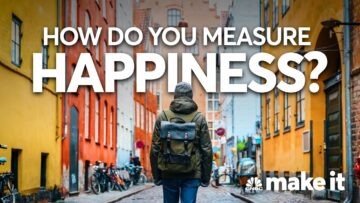

We may never convince the greediest among us that money won’t buy happiness. But if we weren’t persuaded before the pandemic, it seems more of us are now, since thousands of workers refuse to return to exploitative conditions. “The Covid job market,” the Harvard Business Review admits, “is not like 2008, nor really like anything anyone has observed since the birth of modern capitalism.” This observation comes amidst a discussion of the factors influencing hiring, but most economist-speak avoids the emotional language we use to talk about our jobs.
The fact is, most of us are stressed out, unhappy, overworked, and underpaid, with little in terms of public policy or corporate benefits to help reduce the burdens on the average American worker. It’s far worse for other workers around the world. “The average US workweek is 38.6 hours,” notes Business Insider. “That may feel like forever to some people, but it’s nothing compared to some countries’ workweeks.” Workers in Colombia, for example, spend an average of 47.7 hours at work.
Much of that time could be spent caring for ourselves and our families, and lockdowns, quarantines, shelter-in-place and work-from-home orders have given us time to reconsider how we’ve been living. As we do, we might look to Finland and Denmark, where people profess some of the highest rates of happiness in the world, according to the most recent World Happiness Report, a series of measures co-created by Jeffrey Sachs, Director of Columbia University’s Center for Sustainable Development.
“In a lamentable year,” the report points out, “Finland again is the happiest country in the world.” Denmark isn’t far behind. What does this mean? “It’s not primarily a measure of whether one laughed or smiled yesterday,” says Sachs, “but how one feels about the course of one’s life.” This feeling is measured according to “six areas of life satisfaction,” CNBC notes in an introduction to the video above — a short documentary on Finnish and Danish happiness — including “income, healthy life expectancy, social support, freedom, trust and generosity.”
“We need urgently to learn from Covid-19,” says Sachs. “The pandemic reminds us of our global environmental threats, the urgent need to cooperate, and the difficulties of achieving cooperation in each country and globally. The World Happiness Report 2021 reminds us that we must aim for wellbeing rather than mere wealth, which will be fleeting indeed if we don’t do a much better job of addressing the challenges of sustainable development.” Learn what makes the Finns and Danes so happy in the video above (spoiler: it isn’t exorbitant salaries) and learn more about why people in the “happiest” countries thrive at the World Happiness Report.
Related Content:
How Much Money Do You Need to Be Happy? A New Study Gives Us Some Exact Figures
The Keys to Happiness: The Emerging Science and the Upcoming MOOC by Raj Raghunathan
Josh Jones is a writer and musician based in Durham, NC. Follow him at @jdmagness
Why Finland & Denmark Are Happier Than the United States is a post from: Open Culture. Follow us on Facebook and Twitter, or get our Daily Email. And don't miss our big collections of Free Online Courses, Free Online Movies, Free eBooks, Free Audio Books, Free Foreign Language Lessons, and MOOCs.
from Open Culture https://ift.tt/2Upp6hQ
via Ilumina

Comments
Post a Comment